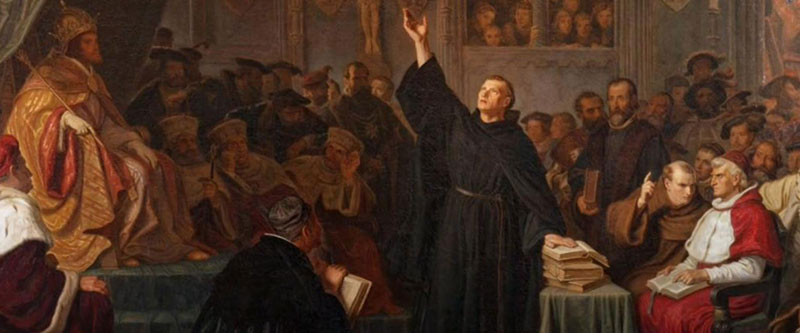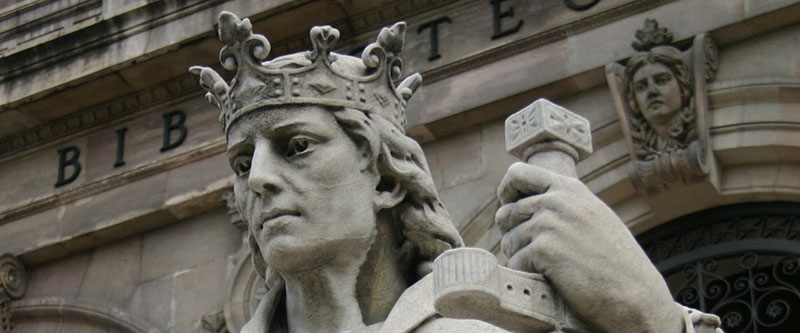
“This whole discourse is concerning civil government; it is therefore to no purpose that they who would exercise dominion over consciences do hence attempt to establish their sacrilegious tyranny.”[1]
At the beginning of this series, I said this series was intended to help the Christian think through how to relate to the Civil Magistrate, or a national government. The mandates and shut-downs witnessed around the globe, have caused concern among Christians. To know how to rightly move forward requires an examination of the Bible’s teaching on the Civil Magistrate.
This installment examined the source of the government’s power. It showed how Romans 13:1-2 clearly establishes that the authority of the magistrate is derived from God himself. He gives it to whom He pleases. Historically this text has been used to assert the “divine right” of kings and governments. Proponents would say that, because God has given power to the government, its decisions cannot be challenged. But rather than give a carte blanche kind of power to governments, the Bible empowers them to a specific end.
There are some key descriptors about the civil magistrate in Romans 13 that help explain the specifics of their power. In verse 4, the magistrate is twice identified as God’s servant and once as an avenger who carries out God’s wrath. In all three cases the magistrate does not represent itself, but God. Identifying the magistrate as God’s servant gives a specific shape to its authority.
But Romans 13 says even more. By calling the civil magistrate God’s servant, it defines the scope of its work. The government is to be a servant “for your good” (v. 4). The Civil Magistrate is assigned a specific task as a servant of God: to establish what is good. Verse 3 talks about the task of the civil magistrate another way: the government is to be a terror to bad and approve of good conduct. Since the fall that kind of government has been necessary. Genesis 3 records Adam’s fall into sin, and the next account in Genesis 4 is of Cain slaying his brother Abel. From the moment of man’s corruption the world has needed protection from evildoers. Romans 13:3-4 identifies that task as the unique end to which God has empowered the government. The job of the civil magistrate is to approve the good and be a terror, or a deterrent, to the evil. The Westminster Confession of Faith says it this way:
“God, the supreme Lord and King of all the world, hath ordained civil magistrates, to be, under him, over the people, for his own glory, and the public good.” (WCF 23.1)
In the Bible, the task of the government is defined using theological terms. The magistrate is to approve the good, and be a terror to the bad. These words are theological terms. The government, or anyone, can only determine how to define “good” and “evil” by looking at the moral law. That means the Civil Magistrate has been empowered to affirm what agrees with God’s definition and to be a terror to what does not. God is the only one who can define what is good or evil regardless of whether His creation agrees.
The civil magistrate is a servant. Servants do not define their own tasks. The master sets the parameters and the servant does what the master wishes. If a master instructs a servant to have a hamburger ready for him at 5:30 p.m., and the servant brings a box of crackers at 8 p.m. instead, there will be trouble for the servant. And this is the point at which things get complicated. In our society, the government is doing much to make its own definitions. The instructions of the master have been forsaken and the servants are taking over. 1 Cor 6:9-10 defines evil as sexual immorality, idolatry, adultery, homosexuality, theft, greed, drunkenness, reviling, and swindling. And yet western governments are promoting such things, not punishing them.
At this point, I can hear the rumblings in the background: Theocracy! People begin imagining a mandatory Christianity with fines for failure to attend church and the civil code for Israel literally applied. However, that is not the objective of this article. It is not an attempt to establish specific policy, but rather to look at responsibility. To what end is the magistrate empowered by God? The government is God’s servant, being constrained to His definition of goodness and evil. When evil is done government is to carry out God’s wrath on the evildoer and is given the sword to do so.
National governments are servants of God. They are either faithful or unfaithful ones, but they have no divine right to do whatever they like. They have a divine master and they must carry out His agenda. The next article will look at whether there are any other limits to the government’s power.

Geoff Gleason is pastor of Cliffwood Presbyterian Church in Augusta, Georgia. His passion is to see the people of God grow in their faith, and those who are lost become numbered among the faithful. He has been married for 28 years and, usually, is the joyful father of 11 children ranging in age from 28 to 6, and two grandsons.
[1] John Calvin, Calvin’s Commentaries Volume XIX (Grand Rapids, Michigan: Baker Books, 2009), 482.




